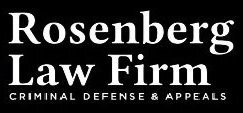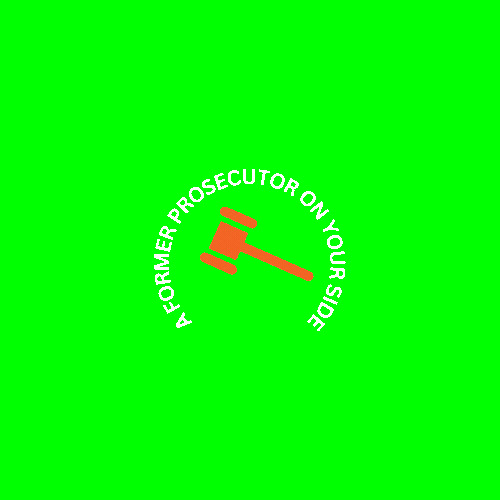Best Class Action Lawyers in Brooklyn
Share your needs with us, get contacted by law firms.
Free. Takes 2 min.
List of the best lawyers in Brooklyn, United States
About Class Action Law in Brooklyn, United States
Class action lawsuits allow a single lawsuit to represent a large group of people who have similar legal claims against the same defendant. In Brooklyn, which is part of Kings County, many class actions are filed in federal court in the Eastern District of New York or in New York State courts under New York Civil Practice Law and Rules. Class actions are commonly used for consumer fraud, defective products, wage-and-hour claims, privacy and data-breach matters, antitrust and securities matters, and other claims where many individuals have small but nearly identical injuries. The goals are to increase efficiency, avoid duplicative litigation, and make it economically feasible to pursue claims that would be impractical for each person to bring individually.
Why You May Need a Lawyer
Class actions involve complex procedural and substantive law. You may need a lawyer if you believe you are part of a group harmed by the same conduct - for example, if you experienced unauthorized charges from a business, purchased a defective product, were subject to similar wage violations at work, or had personal data compromised by the same breach. A lawyer can evaluate whether a class action is appropriate, help gather and preserve evidence, advise on rights and options, file or join a class complaint, handle certification briefing, negotiate and evaluate settlements, and protect the interests of absent class members. Lawyers also handle court notices, manage communications with the class, and ensure court approval of any settlement or fee request.
Local Laws Overview
Several legal frameworks and rules are most relevant for class actions in Brooklyn:
- Federal Rule of Civil Procedure 23 governs class actions in federal court. It sets requirements for class certification, including the common prerequisites - numerosity, commonality, typicality, and adequacy of representation - and provides different bases for class treatment under Rule 23(b)(1)-(3).
- New York State class actions are governed by Article 9 of the New York Civil Practice Law and Rules, which contains procedures for certification, notice, settlement approval, and related matters in state court.
- Consumer protection claims in New York often rely on New York General Business Law Section 349 for deceptive acts and practices. These claims are frequently used in class actions involving consumer fraud.
- Employment claims may proceed as federal class actions under Rule 23 or as collective actions under the Fair Labor Standards Act, which uses a different mechanism that requires individual opt-ins. Labor and employment claims may also involve New York Labor Law provisions for wage-and-hour matters.
- Courts in Brooklyn typically follow the Eastern District of New York local rules for procedures in federal cases. Venue is influenced by where the alleged harm occurred, where parties are located, and where contractual agreements specify venue.
- Arbitration clauses and class-action waivers can prevent class litigation if they are enforceable. Recent federal and state decisions have generally favored enforcement of arbitration clauses and class waivers, so it is important to review contracts and terms of service to see whether arbitration applies.
- Settlements in class actions require court approval. Notices must be provided to class members, opt-out rights must be honored when applicable, and courts review fairness, reasonableness, and adequacy of settlements and attorney fee requests. Where distributions to many small claimants are impractical, courts may permit cy-pres distributions to approved recipients.
Frequently Asked Questions
What exactly is a class action?
A class action is a lawsuit where one or more plaintiffs sue on behalf of a larger group that has similar legal claims. It allows the court to resolve many similar claims in a single proceeding instead of through many separate lawsuits.
How do I know if I am part of a class?
Class membership depends on the class definition in the complaint or in a certified class. You are likely a class member if you were affected in the same way described in the lawsuit - for example, you bought the same defective product during a defined time period or were charged identical unauthorized fees by a company.
How do courts decide whether to certify a class?
Courts decide certification by weighing the Rule 23 prerequisites - numerosity, commonality, typicality, and adequacy of the class representatives - plus whether the proposed class fits one of the Rule 23(b) categories. The court examines whether common legal or factual issues predominate over individual ones and whether a class action is a fair and efficient method to resolve the dispute.
Can I file a class action in Brooklyn or do I have to go to federal court?
You can file in state court under New York CPLR Article 9 or in federal court if federal jurisdiction exists. Federal court requires either a federal question or diversity jurisdiction. Venue often depends on where the defendant does business, where the harm occurred, and contractual venue clauses.
What is the difference between a class action and a collective action?
Class actions under Rule 23 typically bind all class members unless they opt out, while collective actions under the Fair Labor Standards Act require each plaintiff to opt in to be bound and recover damages. The procedures and strategic considerations differ substantially between the two.
How long do class actions take?
Duration varies widely. Some class actions settle within months, while complex cases can take several years to reach resolution, especially if certification, summary judgment, or appeals are involved.
Do I have to pay attorneys out of pocket?
Most class action lawyers work on a contingency-fee basis, meaning they are paid from any recovery or settlement. The court must approve fees charged to the class. In some cases, individual plaintiffs may be asked to cover certain costs, but fees are typically deducted from the settlement or judgment.
Can I opt out or object to a settlement?
Yes. If the court certifies a class under Rule 23(b)(3), class members usually have a right to opt out of the class and pursue an individual lawsuit. All class members receive notice of proposed settlements and have the right to object to the fairness of a settlement at a fairness hearing.
What happens if I already sued the defendant individually?
If you already filed an individual lawsuit, your case may be stayed or coordinated with the class action. If your case involves the same subject matter and your case proceeds, the court will resolve conflict issues such as potential duplication or inconsistent rulings. You should inform your attorney about the class action and coordinate strategy.
How will I know if a settlement is fair and when will I get paid?
The court evaluates fairness, adequacy, and reasonableness of settlements before approval. Notices will explain settlement terms and timelines. Payments depend on claims administration, approval timeline, appeals, and the method of distribution. It is common for distributions to take months after final approval.
Additional Resources
Useful governmental bodies and organizations for class action matters in and around Brooklyn include the following:
- United States District Court for the Eastern District of New York - clerk and local rules for federal filings.
- New York State Unified Court System - information on state court procedures and CPLR Article 9.
- New York State Attorney General - consumer protection enforcement and complaint procedures.
- Federal Trade Commission - consumer protection enforcement at the federal level.
- Consumer Financial Protection Bureau - consumer finance complaints and enforcement.
- United States Department of Labor and New York State Department of Labor - for wage-and-hour and employment-related complaints.
- Equal Employment Opportunity Commission - for federal discrimination complaints that may lead to class litigation.
- Brooklyn Bar Association and local lawyer referral services - for finding experienced class action counsel and free or low-cost consultations.
- Legal aid organizations and nonprofits focused on consumer rights, employment rights, civil rights, or public interest litigation - these groups sometimes partner on class actions or provide referrals.
Next Steps
If you think you may be part of a class action or you want to start one, consider these practical next steps:
- Preserve documents and records related to the issue - receipts, contracts, emails, screenshots, pay stubs, medical records, and any correspondence with the defendant.
- Read any contracts, terms of service, or agreements for arbitration clauses and class-action waivers and note relevant dates and deadlines.
- Keep a timeline of events showing when the harm occurred and how you were affected.
- Contact a lawyer with experience in class actions for an initial evaluation. Many class action firms offer free consultations and operate on contingency-fee arrangements.
- If you are contacted about a proposed class settlement, read the notice carefully, note the deadline to opt out or object, and seek legal advice if you are unsure.
- If you need immediate help, reach out to local agencies such as the New York State Attorney General or the appropriate federal agency to report the issue and learn about complaint processes.
Class actions are powerful tools, but they are procedurally complex. Early preservation of evidence and timely consultation with counsel will protect your rights and help you understand the realistic options and timelines for moving forward.
Lawzana helps you find the best lawyers and law firms in Brooklyn through a curated and pre-screened list of qualified legal professionals. Our platform offers rankings and detailed profiles of attorneys and law firms, allowing you to compare based on practice areas, including Class Action, experience, and client feedback.
Each profile includes a description of the firm's areas of practice, client reviews, team members and partners, year of establishment, spoken languages, office locations, contact information, social media presence, and any published articles or resources. Most firms on our platform speak English and are experienced in both local and international legal matters.
Get a quote from top-rated law firms in Brooklyn, United States — quickly, securely, and without unnecessary hassle.
Disclaimer:
The information provided on this page is for general informational purposes only and does not constitute legal advice. While we strive to ensure the accuracy and relevance of the content, legal information may change over time, and interpretations of the law can vary. You should always consult with a qualified legal professional for advice specific to your situation.
We disclaim all liability for actions taken or not taken based on the content of this page. If you believe any information is incorrect or outdated, please contact us, and we will review and update it where appropriate.









